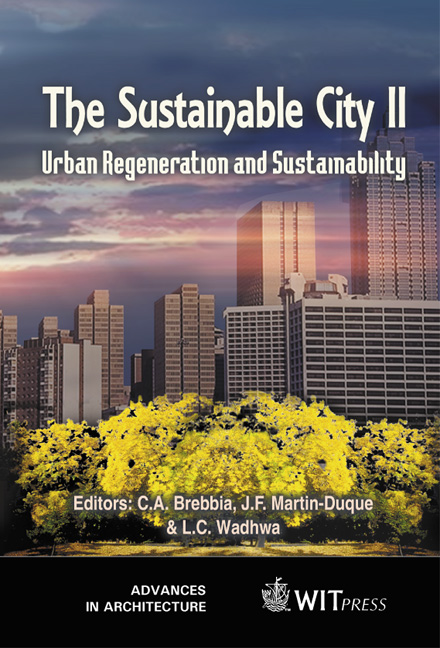Linking Urban Agriculture With Urban Management: A Challenge For Policy Makers And Planners
Price
Free (open access)
Transaction
Volume
54
Pages
Published
2002
Size
616 kb
Paper DOI
10.2495/URS020891
Copyright
WIT Press
Author(s)
R Vásquez, O Cofie, P Drechsel & I F Mensa-Bonsu
Abstract
The rapid increase in urban population and the challenge of urban food security in developing countries has facilitated the entrance of agriculture into our cities. ‘This phenomenon (urban agriculture) is mostly facing mixed reactions by policy makers and ignorance by city planners. However, there are positive signs of acceptance as well as different entry points for the integration of urban agriculture into urban planning for mutual benefits. One of such avenues is the potential of converting urban organic waste into useful material for agricultural production. This could enhance increased food production as well as reduce health and environmental problems caused by accumulated organic waste. This paper presents a case study in Ghana focusing on strategies to integrate urban agriculture into urban environmental management through re-use of municipal waste. It is based on a project co-funded by the International Development Research Centre (IDRC), Canada, and the International Water Management Institute (IWMI), which is aimed at providing decision support for the municipal authorities on viable, environmental friendly and location-specific composting technologies that fit into the (peri) urban context and match the requirement and ability to pay of different farming systems and other potential users. Situation analysis shows that there are available wastes that could be recycled and many stakeholders perceive composting as a good way to minimise waste and as a source of input for agricultural production. Therefore many potential users are willing to use and buy the compost. The necessary institutional linkages to be put in place to ensure sustainability of recycling waste for urban and peri-
Keywords





